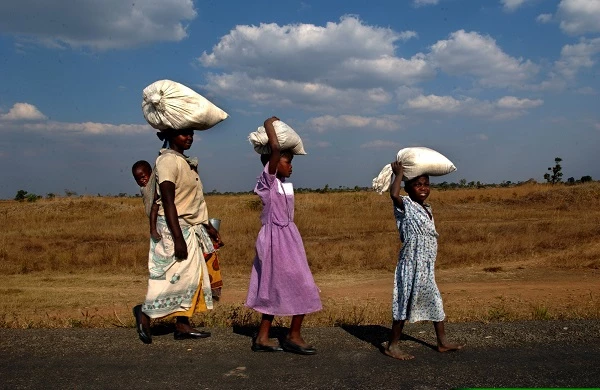Climate change will likely increase wheat prices in food-insecure areas and exacerbate economic disparity
The impact of climate change on economic growth / Rainy days could harm the economy, study finds
Wheat yield is expected to increase at high latitudes and decrease at low latitudes, according to research published in the journal One Earth on August 19. As a result, prices for the grain are likely to fluctuate unevenly and rise in much of the Global South, thereby aggravating existing disparities.
"Most studies primarily focus on how modelling climate change impacts on wheat yields," says lead author Tianyi Zhang, an agro-meteorologist with the Institute of Atmospheric Physics at the Chinese Academy of Science. "This is indeed important, but crop yields do not provide a holistic vision of food security. In the real world, many countries, especially developing countries, heavily rely on agribusiness."
The team has developed a new ensemble modeling approach for climate-wheat-economics. This improved model system enables researchers to examine the effects of both average climate conditions and extreme events on wheat yields, price, and the global supply-and-demand chain. "We know from previous research that extreme events do not necessarily respond in the same way as the mean conditions, and because these extreme events are the most impactful on societies, this is an important step forward," says co-author Karin van der Wiel, a climate scientist in the Royal Netherlands Meteorological Institute.

Climate change will likely increase wheat prices in food-insecure areas and exacerbate economic disparity (Illustrative image).
In high latitude regions, including the United States, Russia, and much of northern Europe, the model predicts that yield will rise. In countries such as Egypt, India, and Venezuela, however, wheat yields are expected to decline by more than 15% in some regions. "With this change in yields, the traditional trade position of the wheat market could be deepened, and this may cause the wheat-importing regions located in low latitudes, such as Southern Asia and Northern Africa, to see more frequent and steeper wheat price spikes than wheat exporting countries," says Zhang.
Not only could these adjustments increase the cost of a crucial food crop in nations already struggling with food security, but they could also make the price of wheat more volatile and exacerbate already existing inequalities. "Trade liberalization policy under 2° warming could stabilize or even increase farmers' income in wheat-exporting countries but would reduce income for farmers in wheat importing countries," says Zhang. "This may create new economic inequality between farmers in wheat -exporting and -importing countries."
Zhang and his team are hoping that by making predictions about the volatility and price of wheat, the world will take notice. "Helping improve the grain food self-supplies in developing countries is crucial for global food security," says Zhang. "This is worthy of discussion between countries in future international agricultural collaboration policy."
Journal Reference: Tianyi Zhang, Karin van der Wiel, Taoyuan Wei, James Screen, Xu Yue, Bangyou Zheng, Frank Selten, Richard Bintanja, Weston Anderson, Russell Blackport, Solveig Glomsrød, Yu Liu, Xuefeng Cui, Xiaoguang Yang. Increased wheat price spikes and larger economic inequality with 2°C global warming. One Earth, 2022; 5 (8): 907 DOI: 10.1016/j.oneear.2022.07.004
End of content
Không có tin nào tiếp theo



